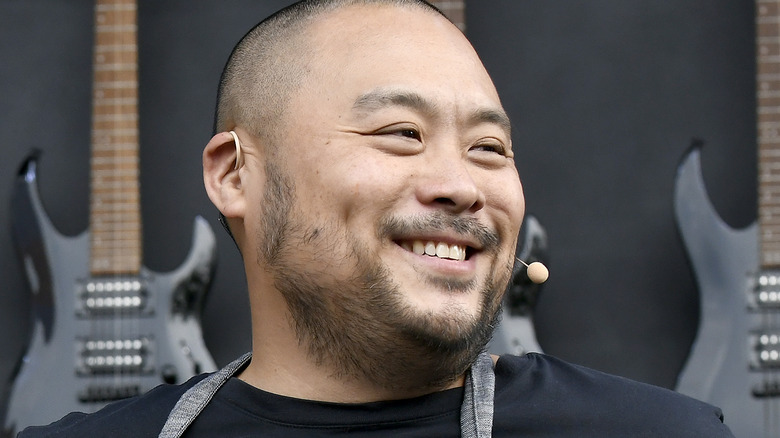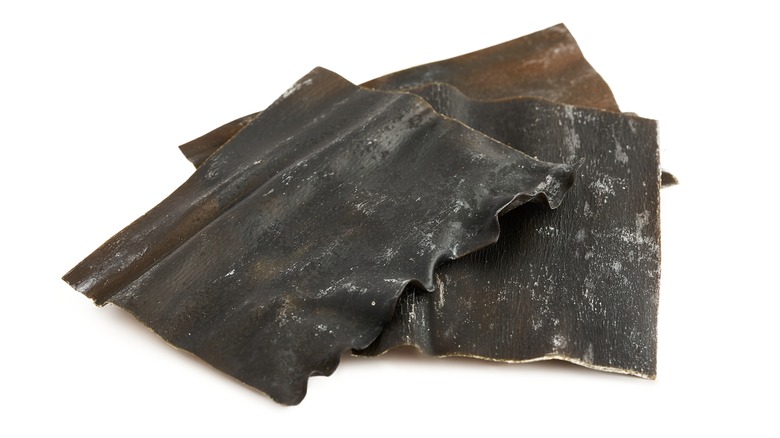The Flavorful Butter David Chang Uses To Boost The Taste Of Bass
Asian food wouldn't be what it is without umami, now widely considered to be the fifth basic taste, along with sweet, sour, salty, and bitter. That flavor is best known for being concentrated in the much-maligned MSG, but it can also be found in kombu, a type of seaweed found across Asia. Kombu has a complex flavor palate that marries both salty and sweet, and while it's commonly used to make a vegetarian soup stock known as dashi or as part of a seaweed salad, the ingredient itself plays a different role in celebrity chef David Chang's kitchen. For him, kombu is the star seasoning for a compound butter responsible for catapulting his mouthwatering roast sea bass to the next level.
For this particular recipe, kombu is neither used on its own nor to make dashi. Instead, the Momofuku chef starts by drying out the seaweed by giving it a few turns in the microwave. After it cools, he pulverizes it in a spice grinder before combining the powder with unsalted, softened butter. The fish is then cooked in the flavored butter, garnished with another popular seaweed, nori, and served with lemon wedges and a side of vegetables.
David Chang's compound butter works well with other seafoods, too
The use of butter to get the most out of kombu's umami flavor is unique because, while butter is widely used in European and American cooking, it is hardly ever used in East Asian cooking. Instead, Japanese, Chinese, and Korean cuisines tend to lean into other types of fat from sesame oil to peanut, corn, soybean, and safflower oils, as well as beef fat and lard. But butter works in this instance because it is able to coax out kombu's umami flavors, particularly after the butter is heated, allowing the flavor of the seaweed to bloom and infuse the butter in the process. Chang's compound butter concoction can also be used to flavor shellfish like grilled prawns and other types of seafood.
In order to make Chang's kombu butter you'll need to locate dried — not pickled — kombu, which can be found at both online and brick-and-mortar Asian groceries. The seaweed itself can be stored in a cool, dry, place for up to a year, while Chang's compound butter should be kept refrigerated and used after no more than three days.

